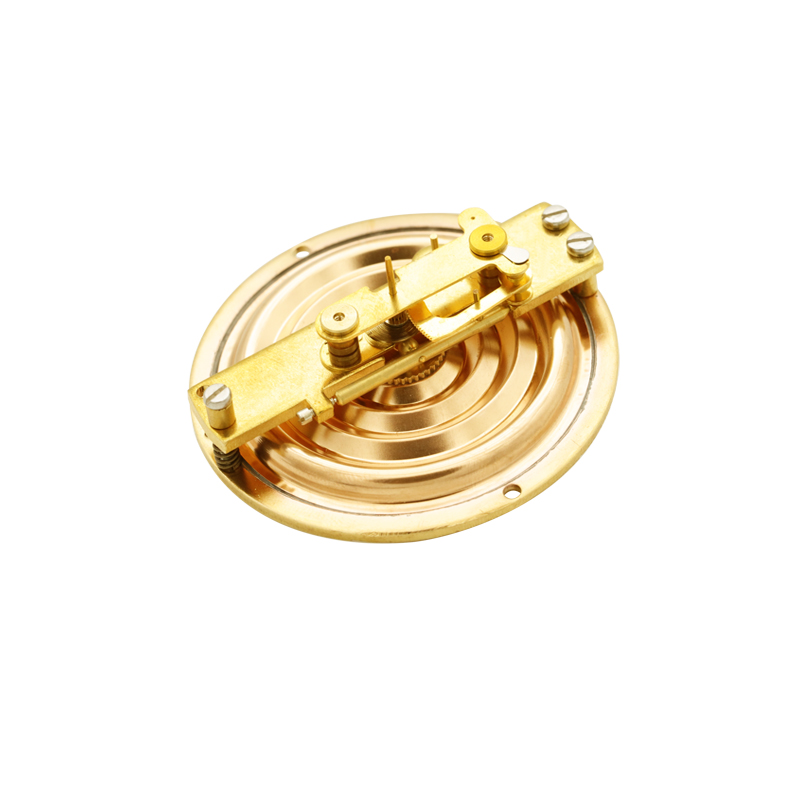
Déc . 11, 2024 11:08 Back to list
pressure gauge components supplier
Understanding Pressure Gauge Components A Guide for Suppliers
Pressure gauges are essential instruments used across various industries to monitor and regulate pressure levels in tanks, pipes, and other equipment. The performance and reliability of these instruments depend significantly on their individual components. For suppliers, understanding the intricacies of pressure gauge components is crucial in providing quality products to customers. This article explores the primary components of pressure gauges, their functions, and considerations for suppliers.
Key Components of Pressure Gauges
1. Bourdon Tube The Bourdon tube is a critical component that translates pressure into mechanical movement. It is typically made from materials like brass or stainless steel to withstand harsh conditions. This curved tube straightens out under pressure, causing a needle to move along a dial, indicating the pressure level. Suppliers must ensure that the Bourdon tubes they provide are made from durable materials that can handle varying pressure extremes.
2. Dial The dial displays the pressure measurement. It is typically marked with a scale indicating the measurement units, such as psi, bar, or kPa. Suppliers should focus on producing dials that are not only easy to read but also resistant to fading, corrosion, and other environmental factors that could impair visibility.
3. Pointer The pointer, usually made of aluminum or plastic, moves along the dial to indicate pressure readings. Accurate and responsive pointers are crucial for precise measurements. Suppliers should ensure that pointers are calibrated and tested for accuracy during manufacturing to maintain the integrity of the pressure gauge.
4. Case The case is the outer shell that protects the internal components of the pressure gauge. It is essential for providing resistance against mechanical and environmental damage. Suppliers often offer cases made from different materials such as plastic, stainless steel, or aluminum, depending on the intended application and environment. Durability and weatherproofing are vital factors in material selection.
5. Connection Fitting This component allows the pressure gauge to be connected to the system it is measuring. Common types include threaded fittings such as NPT (National Pipe Thread) and BSP (British Standard Pipe). Suppliers need to provide a variety of connection fittings to cater to different systems and ensure proper seals to avoid leaks.
6. Fluid Fill Some pressure gauges are filled with a dampening fluid to stabilize the readings and protect internal components from vibrations or pulsating pressures. Suppliers can offer gauges with different fluid types, including glycerin or silicone oil, depending on the application requirements.
pressure gauge components supplier

7. Safety Features Safety is paramount in pressure gauge manufacturing. Features like blow-out plugs can release pressure in case of excessive buildup, protecting users from hazardous situations. Suppliers should prioritize safety features in their products, ensuring they meet industry standards and regulations.
Considerations for Pressure Gauge Component Suppliers
As a supplier of pressure gauge components, it is essential to maintain high standards of quality and reliability
. Here are a few key considerations- Material Selection Choose high-quality materials that can withstand the operational environment of the pressure gauges. Corrosion resistance, high-pressure tolerance, and durability should be priorities.
- Customization Many industries require customized solutions for their pressure monitoring needs. Being flexible in design and component offerings can give suppliers a competitive edge.
- Testing and Certification Rigorous testing of components for accuracy and reliability is crucial. Obtaining certifications from recognized organizations can enhance credibility and customer trust.
- Customer Support Providing excellent customer service, including assistance with installation and troubleshooting, can greatly improve supplier-client relationships.
Conclusion
In conclusion, the integrity of pressure gauges relies heavily on the quality of their components. Understanding the essential parts and their functions allows suppliers to offer better products that meet the needs of various industries. By focusing on quality, customization, and safety, suppliers can establish themselves as trusted partners in the ever-evolving field of pressure measurement.
-
High-Accuracy Differential Pressure Gauge Diaphragms OEM Factories & Services
NewsMay.24,2025
-
Water Fire Extinguisher Pressure Gauge Durable Supplier Solutions
NewsMay.24,2025
-
Handheld Digital Differential Pressure Gauge Portable, High-Accuracy & Real-Time Data
NewsMay.24,2025
-
Digital Pressure Gauge RS Components for Semiconductor & Chip Industries
NewsMay.23,2025
-
Industrial Differential Pressure Gauges Global Supplier & Pricelist
NewsMay.23,2025
-
Bourdon-Type Differential Pressure Gauges High Accuracy & Affordable Pricing
NewsMay.22,2025
